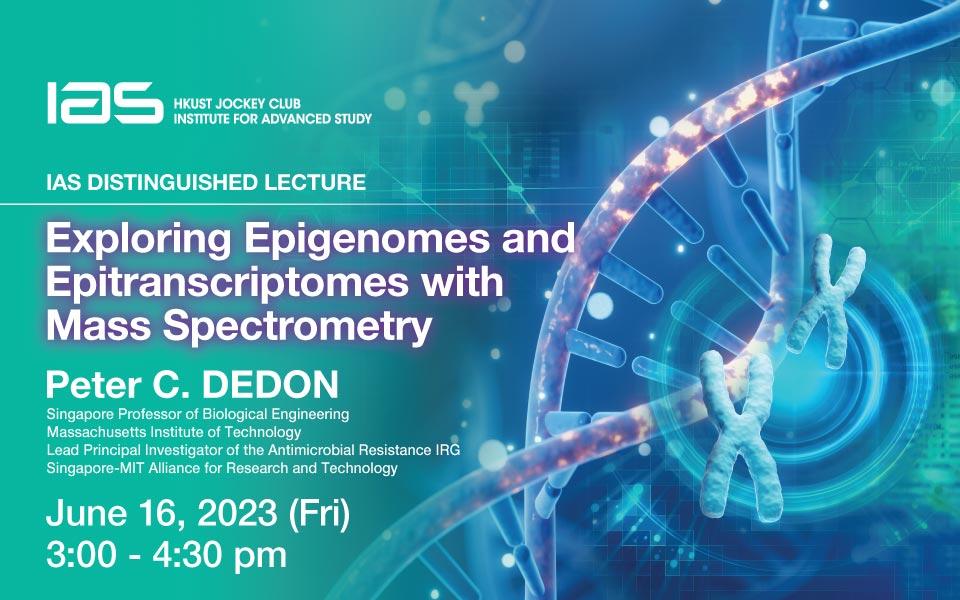IAS Distinguished Lecture - Exploring Epigenomes and Epitranscriptomes with Mass Spectrometry
Supporting the below United Nations Sustainable Development Goals:支持以下聯合國可持續發展目標:支持以下联合国可持续发展目标:
Abstract
The Central Dogma defines the “what” of biology: genes are transcribed into messenger RNAs that are translated into proteins. But it says nothing about the “when” or “how much” of expressing 4,000 genes in bacteria or 20,000 genes in humans. Convergent technologies have uncovered information-rich scheduling systems for gene expression involving the dozens of chemical modifications of DNA and RNA in every cell – the epigenome and epitranscriptome. The speaker and his research group have developed a variety of analytical and informatic platforms for systems-level epigenetics and epitranscriptomics studies in infectious disease, the gut microbiome, and cancer. For example, one platform coordinates comparative genomics, sequencing, and mass spectrometry to discover new DNA modifications, such as phosphorothioate and 7-deazaguanine modifications of bacteriophage and bacterial DNA, including the human microbiome. In the realm of epitranscriptomics, they have applied mass spectrometry tools at multiple levels to discover a mechanism of translational control of cell response in humans, yeast, parasites, bacteria, and viral infections. This mechanism involves stress-induced reprogramming of dozens of tRNA modifications to facilitate selective translation of codon-biased mRNAs critical to the cell stress response. The speaker and his research group are now leveraging these epigenetic and epitranscriptomic discoveries to develop enzymatic tools for biotechnology, methods for industrial microbiology and protein production, and new antimicrobial and anticancer agents.
About the Speaker
Prof. Peter C. DEDON received his BA in Chemistry from St. Olaf College in 1979 and his MD and PhD in Pharmacology from the University of Rochester in 1987. He then pursued postdoctoral research in chromatin biology at the University of Rochester and in chemical biology of DNA-cleaving anticancer drugs at Harvard Medical School. In 1991, he joined the Massachusetts Institute of Technology (MIT) and helped create the Department of Biological Engineering in 1998. He is currently the Singapore Professor of Biological Engineering at MIT and the Lead Principal Investigator in the Singapore-MIT Alliance for Research and Technology Antimicrobial Drug Resistance Program. He is also a member of the MIT Center for Environmental Health Sciences.
Building on MD-PhD training in cancer pharmacology, Prof. Dedon’s research program applies chemical approaches to understanding nucleic acid biology. His research group has developed a variety of analytical and informatic platforms for discovery and quantitative analysis of epigenetics and epitranscriptomics in infectious disease and cancer. His work has been recognized by election as a Fellow of the American Chemical Society in 2011 and a Fellow of the American Academy of Arts and Sciences in 2023. Prof. Dedon has also commercialized his technologies and discoveries in several biotechnology startup companies.
For Attendees' Attention
Seating is on a first come, first served basis.
